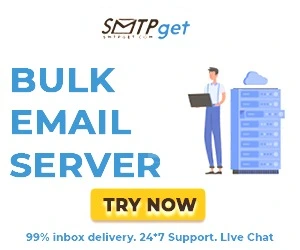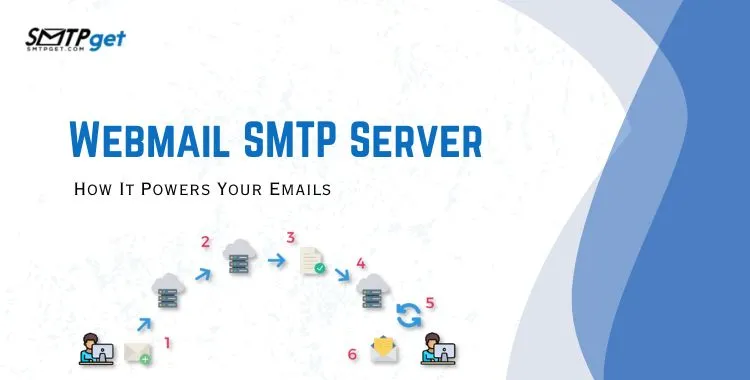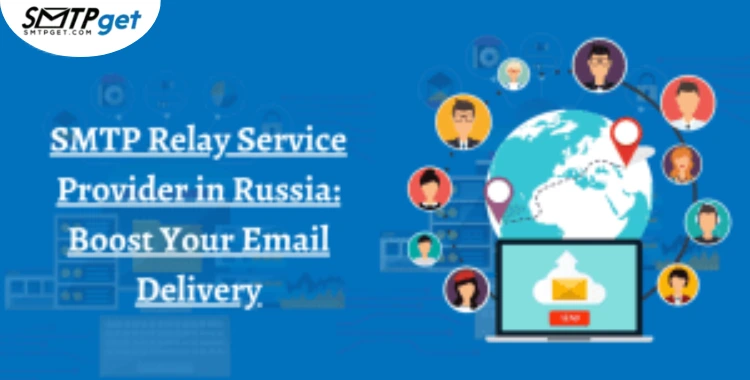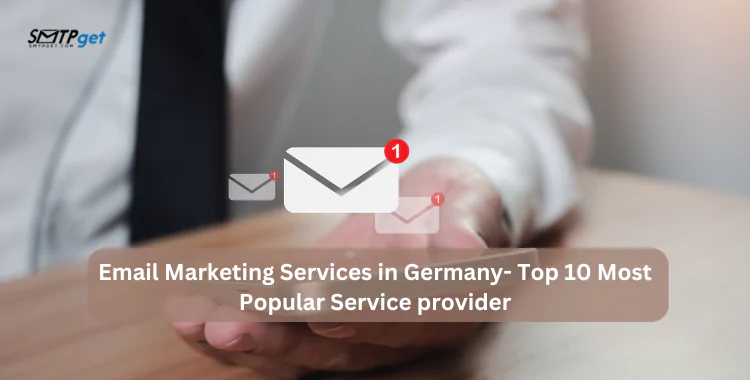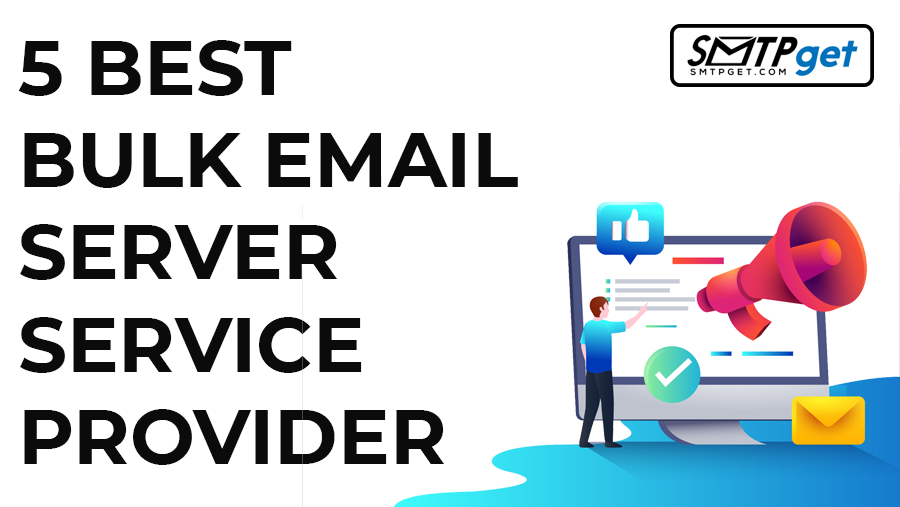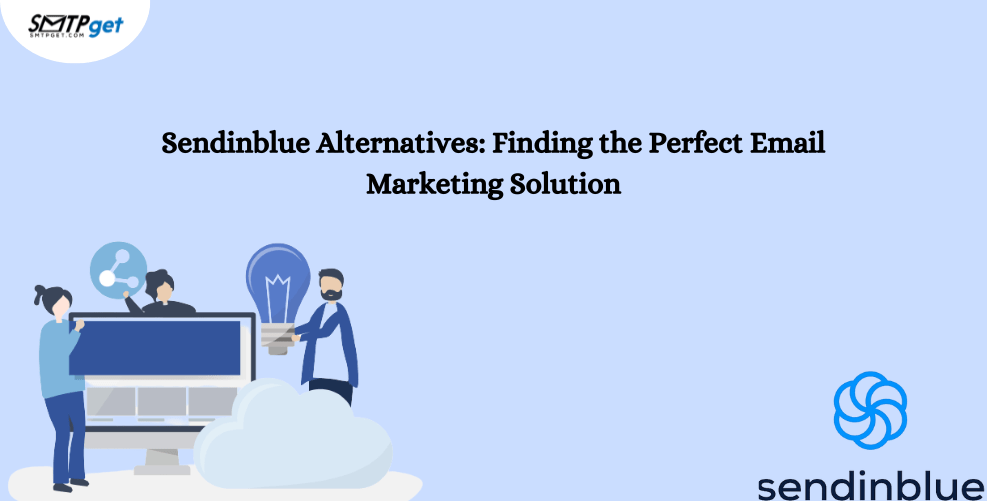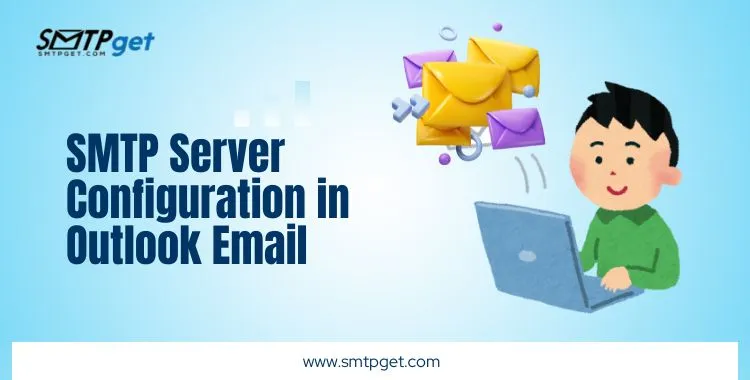Email compliance is essential for businesses to ensure legal adherence and maintain customer trust. With various laws and regulations governing email communication, companies must follow best practices to avoid legal issues and improve email deliverability. Non-compliance can result in hefty fines, blocked emails, and reputational damage.
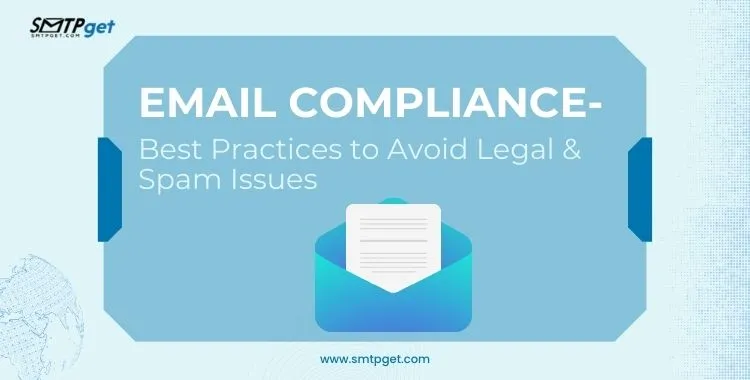
This guide covers the key aspects of email marketing compliance, from legal requirements to best practices. By following these guidelines, businesses can conduct successful email campaigns without violating regulations or compromising their reputation.
Our Pricing:
| Pricing | Cheapest Plan | Standard Plan | Professional Plan |
| SMTP Server Services | $110 | $165 | $220 |
| Bulk Email Server | $50 | $145 | $225 |
| Bulk Email Service | $30 | $110 | $220 |
What is Email Compliance?
Email compliance is the practice of following legal regulations and industry standards when sending emails, especially marketing emails. These regulations are designed to protect users from spam, fraud, and unauthorized use of personal data while ensuring businesses send emails ethically and legally.
Failure to comply with email compliance laws can result in severe penalties, including hefty fines, legal action, and blocked email delivery from service providers.
Why Email Compliance is Important
1. Avoid Legal Issues
Many countries have strict email compliance laws, and violating them can lead to significant fines and legal trouble.
2. Improve Email Deliverability
Compliant emails are less likely to be flagged as spam and more likely to reach customers’ inboxes.
3. Protect Customer Trust
Following email compliance best practices ensures customers feel secure when receiving your emails.
4. Secure Customer Data
Proper email compliance includes responsible handling of customer data, and reducing the risk of breaches.
Key Email Compliance Laws Around the World
Different countries have unique email marketing laws. Below are some of the most important regulations businesses must follow:
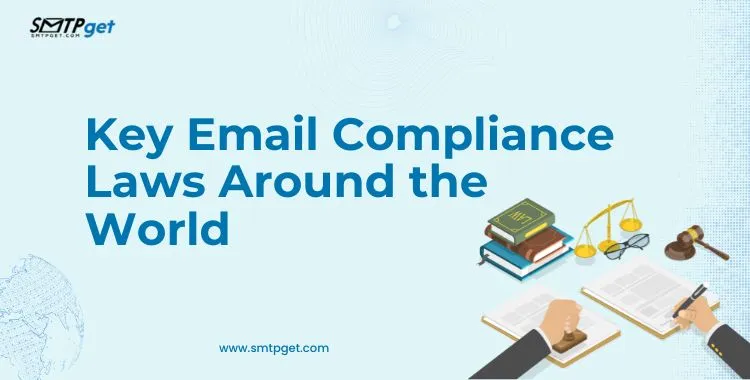
1. CAN-SPAM Act (USA)
Ensures transparency and honesty in marketing emails.
- No misleading subject lines.
- Must include a valid postal address.
- Clear and easy unsubscribe options.
- Unsubscribe requests must be honored promptly.
2. GDPR (EU)
Strict data privacy law affecting businesses targeting European users.
- Explicit permission is required before sending marketing emails.
- Users can access, modify, or delete their data.
- Strong security measures must be in place.
3. CASL (Canada)
Regulates unsolicited emails.
- Consent is required before sending emails.
- Emails must include sender identification and contact details.
- A simple opt-out mechanism is mandatory.
4. PECR (UK)
Works with GDPR to regulate email marketing.
- Clear permission is required before sending emails.
- Opt-out options must be available.
- Subscriber data must be protected.
5. Australia’s Spam Act
Prevents unsolicited commercial emails.
- Permission is mandatory before sending emails.
- Emails must include sender identification and contact information.
- Unsubscribe requests must be honored within five business days.
How to Perform an Email Compliance Check
Ensuring email marketing compliance before sending marketing emails is crucial. Follow these steps:
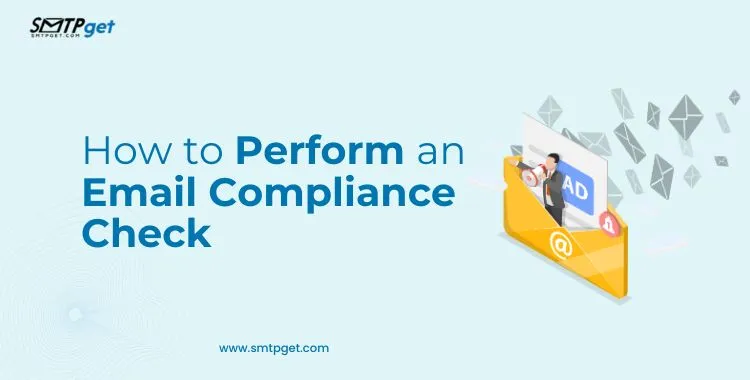
1. Use an Email Compliance Checker
Email compliance checkers help identify potential compliance risks and formatting errors. Popular tools include:
- Litmus – Checks for compliance and spam issues.
- MailGenius – Tests for potential compliance risks.
- GlockApps – Helps improve deliverability and compliance.
2. Get Clear Permission Before Sending Emails
Use a double opt-in method to confirm subscribers genuinely want to receive your emails.
3. Include an Unsubscribe Option in Every Email
Every email must have a simple way for recipients to unsubscribe, and requests should be processed immediately or within a few days.
4. Provide Accurate Sender Information
Your emails must include your company’s name, physical address, and contact details.
5. Avoid Misleading Subject Lines
Using deceptive subject lines is a violation of email laws and can lead to penalties.
6. Secure Customer Data
Businesses must implement strong security measures to protect user data from breaches.
7. Regularly Monitor and Update Compliance Policies
Laws evolve, so staying informed about the latest regulations ensures continued compliance.
Choosing the Best Email Compliance Service Providers
Many businesses send emails to their customers. But they must follow the rules to make sure their emails reach the inbox and don’t break any laws. Some companies provide email services that help businesses send emails safely and legally. Below are some of the best email marketing service providers for email marketing compliance:
1. iDealSMTP
iDealSMTP is a powerful email service that helps businesses send a large number of emails quickly and safely. It makes sure emails don’t go to spam and helps companies follow email compliance laws.
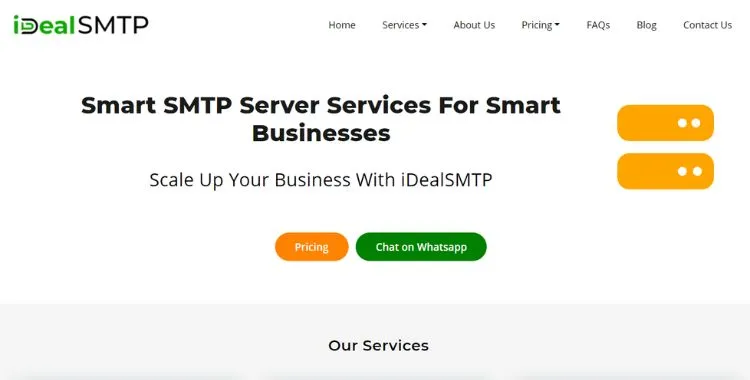
Key Features:
- 99% deliverability rate – Most emails reach inboxes, not spam.
- Dedicated IP addresses – Helps businesses build a good reputation.
- Advanced analytics – Tracks emails to see who opens them.
- Secure encryption – Keeps email content safe from hackers.
- Easy integration – Works with many other tools and apps.
Best for: Businesses that need to send a lot of emails without any issues.
2. SMTPget
SMTPget is a simple and budget-friendly email SMTP service provider. It helps businesses send bulk emails while maintaining email marketing compliance. It also provides great support if anything goes wrong.
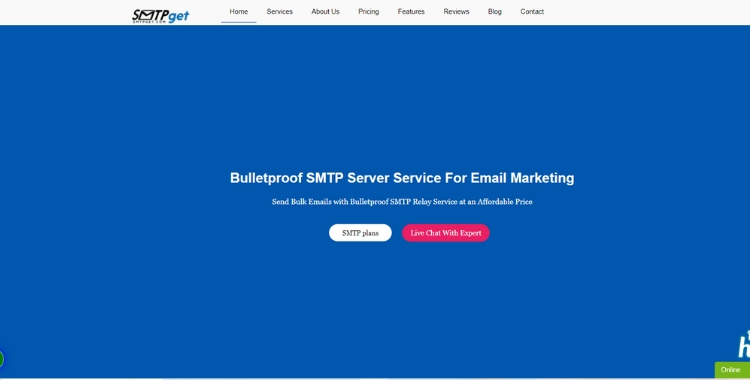
Key Features:
- High deliverability rates – Ensures emails reach the inbox.
- User-friendly dashboard – Easy to use, even for beginners.
- Bulk email support – Sends thousands of emails at once.
- Real-time analytics – Tracks email performance.
- 24/7 customer support – Help is available anytime.
Best for: Small and growing businesses that need an affordable email solution.
3. SMTPmart
SMTPmart is a secure email service that helps businesses send emails without spam and email compliance issues. It offers strong security to keep emails safe from hackers.
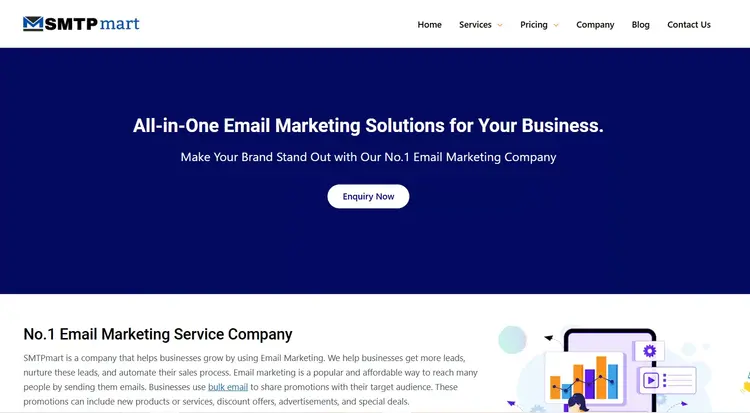
Key Features:
- High deliverability rates – Emails reach customers, not junk folders.
- Intuitive dashboard – Simple design makes it easy to use.
- Detailed analytics – Shows how well emails are performing.
- Scalable solutions – Works for both small and big businesses.
- Strong security measures – Protects emails from cyber threats.
Best for: Businesses that need a safe and secure email service.
4. Sendinblue (Brevo)
Sendinblue is a complete marketing tool that helps businesses send emails and SMS. It has automation to send emails at the right time.
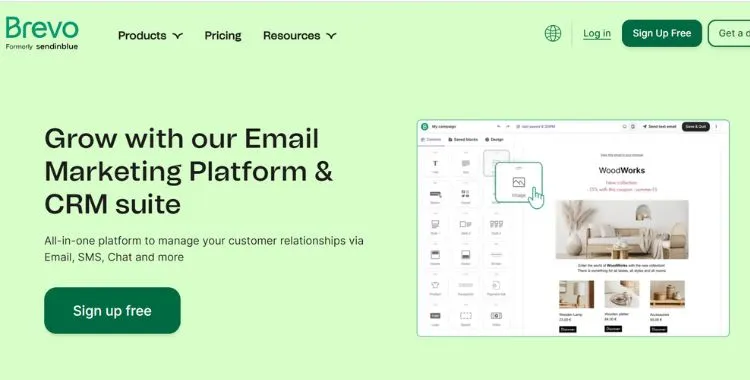
Key Features:
- Drag-and-drop email editor – Create emails easily without coding.
- Automation workflows – Sends emails automatically.
- Segmentation tools – Sends emails to the right people.
- Transactional email support – Great for order confirmations and alerts.
- Real-time reporting – Tracks email results instantly.
Best for: Businesses that need email and SMS marketing in one platform.
5. Mailchimp
Mailchimp is a tech-friendly email service made for developers and businesses. It helps send and track emails using powerful tools and APIs.
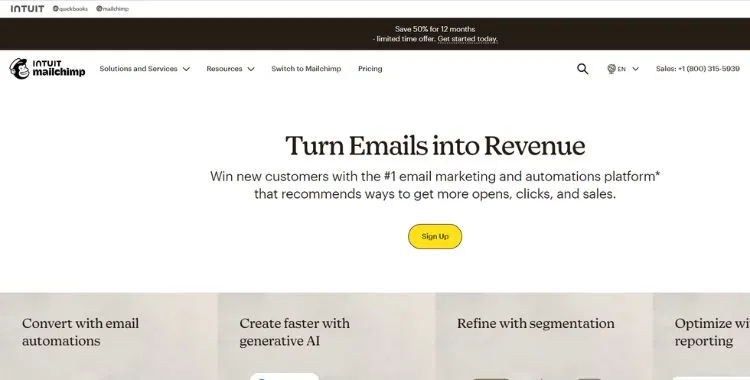
Key Features:
- Seamless API integration – Connects easily with other apps.
- High deliverability – Ensures emails reach the inbox.
- Advanced analytics – Monitors email performance.
- Email validation – Checks emails before sending to avoid mistakes.
- Scalable infrastructure – Can handle both small and large email campaigns.
Best for: Developers and businesses needing a custom email solution.
6. Amazon SES (Simple Email Service)
Amazon SES is a low-cost and powerful email service from Amazon Web Services (AWS). It is great for sending lots of emails at a cheap price.
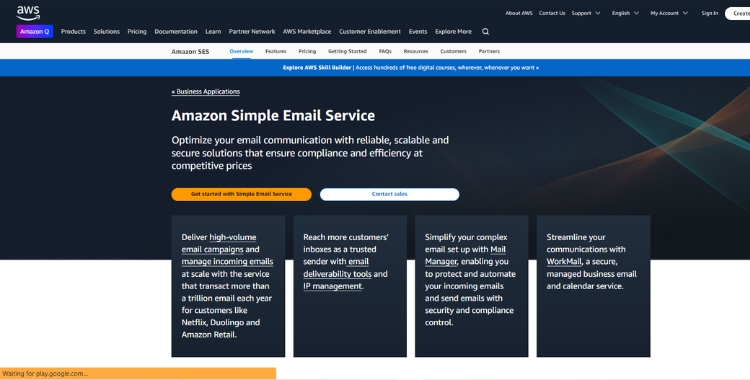
Key Features:
- Scalable and budget-friendly – Saves money while sending more emails.
- Reliable email delivery – Emails are sent safely and on time.
- Flexible configuration – Works for different types of emails.
- Strong security features – Keeps emails and customer data safe.
Best for: Businesses looking for a cheap and reliable way to send emails.
How to Choose the Right Email Compliance Checker?
When selecting an email compliance checker, consider the following:
- Follows email compliance laws – Does it comply with GDPR, CAN-SPAM, and CASL?
- Safe Sending – Does it support SPF, DKIM, and DMARC for security?
- Good Deliverability – Does it send emails to the inbox, not spam?
- Data Protection – Does it keep customer data safe?
- Scalability – Can it handle a growing business?
Using the right email compliance checker will help your business send emails safely, stay compliant, and avoid penalties.
Conclusion
Email compliance is essential for the success of marketing campaigns, both legally and strategically. By understanding email compliance laws, using email compliance checkers, and adopting best practices, businesses can avoid penalties, improve deliverability, and build customer trust.
Using reliable email marketing compliance service providers and conducting regular email compliance checks will ensure your email campaigns are effective and legally compliant.
